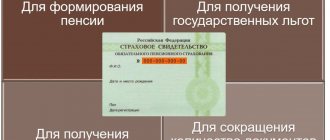Preliminary hearing in a criminal case
Very often our clients ask the question, what is a preliminary hearing in court ? Today I will try to answer this question. So let's start from the very basics.
After the case is submitted to the court for consideration on its merits, the following happens:
The court has two options to begin the trial - either immediately schedule a court hearing (main hearing), or first hold a preliminary hearing (preparatory hearing).
A preliminary hearing (Chapter 34 of the Code of Criminal Procedure) is not yet the “court” itself in its everyday understanding (i.e., not a classic trial at which the issue of guilt is decided). This is also a court hearing with the parties summoned, but it is held behind closed doors (that is, without relatives and just spectators in the courtroom). It can be carried out without the accused if he requests it (Part 3 234 of the Code of Criminal Procedure).
This is only preparation for the main “trial”, during which organizational issues are resolved - for example, in what form to conduct the trial further (and whether it is worth conducting it at all).
Both the defense and the prosecution may request a preliminary hearing, or the court itself may order it on its own initiative.
Let us remind you that the accused can ask for this at the stage of familiarization with the criminal case, at the so-called “217th” or within 3 days after receiving the indictment (Part 3 229 of the Code of Criminal Procedure).
When is a preliminary hearing held?
And it will be carried out if (Part 2 229 of the Code of Criminal Procedure):
— One of the parties before the start of the trial declares the exclusion of some specific evidence available in the case. It is clear that most often it is the defense that asks for this, since the prosecution already has “levers” not to add evidence to the case that it does not like.
— If there are grounds to return the case to the prosecutor (237 Code of Criminal Procedure) due to “film mistakes” in the indictment. These “blunders” can be seen by the court itself when studying the case received by it, and the defense can see them. The prosecutor’s office, as a rule, resists the return of the case on this basis (it’s their fault, they didn’t notice). Another point is that the prosecutor’s office may ask to return the case if it suddenly turns out that after the indictment was approved, the crime turned into a more serious one (for example, the victim died in the hospital).
— If there are grounds to return the case or terminate it altogether. For example, if the accused “got on the skis” (suspension) or it turned out that the statute of limitations had expired (termination). If the accused did not “go on the run”, but initially hides abroad, then he can be convicted without it, but this is a special procedure (Part 5 247 of the Code of Criminal Procedure), the application of which is also decided at the preliminary hearing.
- If the accused asks for a jury trial.
— If there are grounds for separating the case (and sending it to another court), or one of the parties asks to join the criminal cases.
Again, a preliminary hearing is not always held, but only if there are grounds for it.
After the preliminary hearing, a main, full-fledged court hearing is scheduled, in which the case is examined on the merits.
!!! Significant violation: the absence in the case of such a document as a decision to schedule a court hearing entails the cancellation of the verdict. It happens like this - the judge scheduled a preliminary hearing, decided some issues at it (for example, extended the arrest period), notified everyone of the date of the next hearing against signature, but did not issue a separate ruling on the date of the hearing (or did not reflect the decision in the ruling on extending the arrest about the date of the meeting). This violation is called “lack of procedural decision following a preliminary hearing.”
But the result of the preliminary hearing can be not only a transition to consideration:
- the case may be returned to the prosecutor (and it is not always clear when and in what form it will come to court again); - the case may be sent to another court according to jurisdiction; - the case can be separated (and the allocated “piece” can also be sent to another court), the case can be dismissed (but this happens quite rarely). By the way, theoretically, at this stage, God’s grace may “descend” on the prosecutor’s office and the charges may be dropped completely or partially; - the court can terminate the case with a judicial fine (clause 4.1, part 1, 236 of the Code of Criminal Procedure), if, of course, all the conditions for this are met.
If the case moves further, then a court hearing is scheduled either in the usual manner, or in a special manner (Chapter 40 of the Code of Criminal Procedure), or with the participation of jurors.
This is a preliminary hearing in a criminal case. But it’s better to seek advice from a lawyer at the Kurgan City Bar Association “PARITET”
With respect to you, lawyer of the Kurgan City Bar Association “Paritet” V.N. Vagin
In court alone and without a lawyer
If a client finds himself in court alone without a lawyer, he often does not know what to do. The rules of behavior in court are described in detail by procedural legislation, but how to behave with judges, and why attention should be paid to this, is not described anywhere.
About judicial status and its influence on personality
If I do not explain how the status of a judge affects his personal qualities, then in this publication I will only write about procedural legal norms, which everyone can read independently by looking at any reference legal system.
We must understand that people with power undergo psychological transformation and are different from ordinary people. They are not smarter or dumber, have no better or worse education, they are not better or worse than others - they are different! And this circumstance must be taken into account when communicating with judges so that you do not have to complain about them in the future. Just like with investigators, prosecutors, police officers and employees of other services and government bodies, about whom I write in other publications.
I had to meet with many judges of various judicial instances, with ordinary and heads of courts, and I have personal relationships with some. In addition, I myself consider cases as an independent arbitrator and observe the behavior of the parties to disputes from the place of the very person on whom the outcome of the case depends.
There are approximately four typical groups of judicial personalities (let's call it that), which are based not only on their moral qualities, but also on the psychological characteristics of the individual. Under the influence of these qualities, the relationship between the judge and the participants in the process (plaintiff, defendant, third party, defendant, victim, witness, etc.) develops, with the exception of professional participants - lawyers, prosecutors. I will not examine each group of judges in detail, but I will indicate their main behavioral characteristics and how they affect the participants in the process and ordinary people who are forced to communicate with them outside the court hearing.
Types of judicial personality
- educated and powerful at the same time. Such people give orders in a respectful manner in a court hearing. Take full advantage of their status to manage the legal process. Psychologically, they do not oppress the participants in the process and command respect. There is no personal sympathy;
- ill-mannered and domineering. For example, like the ones in this video . These also rule, but they can insult and even humiliate the participants in the process. They easily use their power for this purpose and demonstratively emphasize their judicial status. Participants in the process cause psychological oppression, suppress the will, cause irritation, opposition, disrespect and even hatred;
- tactful, respectful. Power and status are used quietly, naturally. They also control the participants in the process imperceptibly and naturally, without pressure from their status and power. Court hearings take place in a working, friendly atmosphere. The participants in the process evoke respect and personal sympathy. Sometimes the losing party (the convicted person) takes the decision (sentence) for granted and does not even appeal it;
- cold, indifferent, soft and weak-willed. Such different types are combined into one group, since all of them, by their behavior, provoke the participants in the process to free non-procedural actions, disorder, negligence, familiarity in the process and familiarity outside it. Such judges do not evoke any personal sympathy or respect among the participants in the process.
Typical behavior of participants in court
Since the main figure in the process is the judge, he also imposes a form of relationship on the participating persons, depending on his personal type.
types of behavior of participants in the process, and in court
- weak, passive people, being in a depressed state, finding themselves in court without a lawyer due to various circumstances, become wingmen, react sluggishly to other participants, to the judge, which can cause him irritation or, at best, indifference, which increases the degree of permissiveness of the judge and the arbitrariness of his decision (sentence);
- active, dependent people try to please the judge, seek his favor, hoping to evoke positive emotions in the judge and, against this background, expect positive bonuses from him in the decision (sentence). Such a calculation is not justified, since it provokes the judge to be permissive and increases arbitrariness in making a decision (sentence), regardless of the existing emotional background. Therefore, the decision (sentence) may be exactly the opposite of what the participants expected;
- active, persistent, convinced, daring participants in the process, actively behave in court proceedings, although not always correctly and reasonably. Such participants, as a rule, are brawlers and complainers to all authorities known to them. They evoke negative emotions in the judge, which mobilizes him to be cautious in the hearing and when making a decision (sentence), too. Moreover, his decision often has a negative motivation. There is a known case when a judge wrote out her negative attitude towards a participant in the process on three pages of the decision;
- balanced, calm, knowledgeable participants, as a rule, active in the process, confident, have good control over the situation, and work. Judges treat such people carefully, cautiously and with an understanding of the possible consequences for them when making a decision (sentence).
From what I have outlined here, readers should understand that the result of a court case is collectively influenced not only by the factual circumstances of the case, but also by the personal qualities of the judge, his perception and assessment of the behavior of the participants in the process.
Recommendations for participants in litigation without a lawyer
- behave calmly, with dignity, but not defiantly or arrogantly;
- even if you don’t like the judge, don’t show it, don’t demonstrate your attitude towards him;
- do not argue with the judge, since he is the master of the situation;
- Be careful in appearance, dress in court simply and classically, but in clean clothes. Don't try to demonstrate your poverty or prosperity;
- show respect in your behavior towards the judge, even if you do not respect him as a person;
- ignore and forgive a female judge emotional attacks, mood swings, weaknesses, if they do not affect the essence of the case;
- don’t trust the judge’s word, check if you can check;
- do not ingratiate yourself, do not humiliate yourself, do not try in any way to please the judge;
- do not try to bribe the judge or interest him in some benefits - you, a stranger, will be regarded as a provocateur with all the negative consequences for you;
- do not react emotionally to rudeness, ridicule and humiliation from the judge, if they happen, be indifferent, behave with restraint and dignity;
- outside the court session, continue to behave with dignity, do not allow yourself or the judge to approach you with familiarity;
- behave calmly and kindly outside the court hearing, remember that you may have to meet more than once.
Rest assured that all court visitors experience excitement when interacting with a judge in or out of court. There are several reasons for this anxiety, but the main one is the awareness of your dependence on the judge who is making a decision (sentence) that is significant for you. However, people experience such excitement when communicating with all law enforcement officers.
Important! Be attentive, careful and respectful in court, do not allow yourself to express yourself emotionally!
These are the basic rules of conduct for a client in court without a lawyer.
Checklists for criminal cases can be found here, for civil cases - here, for arbitration cases - here.
How to correctly and effectively appeal an investigator - here, and a judge - read here.
Subscribe, learn, contact!
PS If you find my website ROSTOV LAWYER useful and it may still come in handy in life, bookmark it or share it with friends. And don't forget to get my free CLIENT HANDBOOK.
Commentary on Article 227 of the Code of Criminal Procedure of the Russian Federation
1. In the meaning of com. Article, the judge is not faced with the task of determining the sufficiency of evidence to consider the case in court. The issue of sufficiency of evidence can be considered here in the form of a preliminary hearing only on the issue of the existence of grounds for suspending or terminating the criminal case (Articles 238, 239 of the Code of Criminal Procedure of the Russian Federation). Thus, the question of the sufficiency of evidence to consider the case in court proceedings is decided by the prosecutor, sending the case to court in accordance with Art. 222, clause 1, part 1, art. 226). The basis for a judge to make a decision to schedule a court hearing in the general manner is compliance with procedural conditions (whether the criminal case is within the jurisdiction of this court, whether copies of the indictment or indictment have been handed over), under which the case can be heard in court, as well as the absence of grounds for holding preliminary hearing.
2. This article talks about issues resolved by a judge in a case that came to this judge, and not to the court. When a case arrives at the court, it is registered in the court office, after which it is distributed among the judges by the chairman of the court. The Code of Criminal Procedure of the Russian Federation does not establish rules regulating the distribution of criminal cases received by the court among judges. In practice, court chairmen use various criteria for this: the specialization of judges, when it is established in a given court, the experience of the judge, his length of service, the workload of judges with other cases, the productivity of judges, the order in which judges go on vacation, the illness of judges, etc. At the same time, the lack of legal regulation of the procedure for distributing cases in court creates the basis for influence on judges by the presiding officer in violation of the principle of judicial independence, and often for abuse. The Recommendation of the Committee of Ministers of the member states of the Council of Europe “On the independence, effectiveness and role of judges” states that “the distribution of cases should not be influenced by the wishes of any of the parties to the case or any persons interested in the outcome of the case. Such distribution may, for example, be carried out by means of a drawing of lots or an automatic alphabetical distribution system or some similar method. A case cannot be withdrawn from a judge without compelling reasons, such as serious illness or a conflict of interest. Such grounds and procedures for recall must be provided for by law and not depend on the interests of the government or administration" (paragraphs "e", "f" of the section "General principles of judicial independence"). It should be noted that a fair and objective procedure for the distribution of cases between judges is no less (and sometimes even more) important for the purposes of the administration of justice than other guarantees of the independence of judges, therefore the gap in the legislative regulation of this issue is especially sensitive.
Regulations of Part 1 of Art. 30 of the Code of Criminal Procedure allows the use of an automated information system to form the composition of the court considering a particular case, but this norm is still practically not applied.
3. At the request of a party, the court has the right to provide her with the opportunity to additionally familiarize herself with the materials of the criminal case <1>. Although the parties had the opportunity to familiarize themselves with the case materials during the preliminary investigation and at its completion, it should be borne in mind that this rule applies to the civil plaintiff, civil defendant and their representatives - not in full, but only in that part of the case materials. which relates to a civil claim (Part 1 of Article 216).
——————————— <1> See paragraph 4 of the Resolution of the Plenum of the Supreme Court of the Russian Federation of December 22, 2009 N 28 “On the application by courts of the norms of criminal procedural legislation governing the preparation of a criminal case for trial” / / BVS RF. 2010. N 2.








